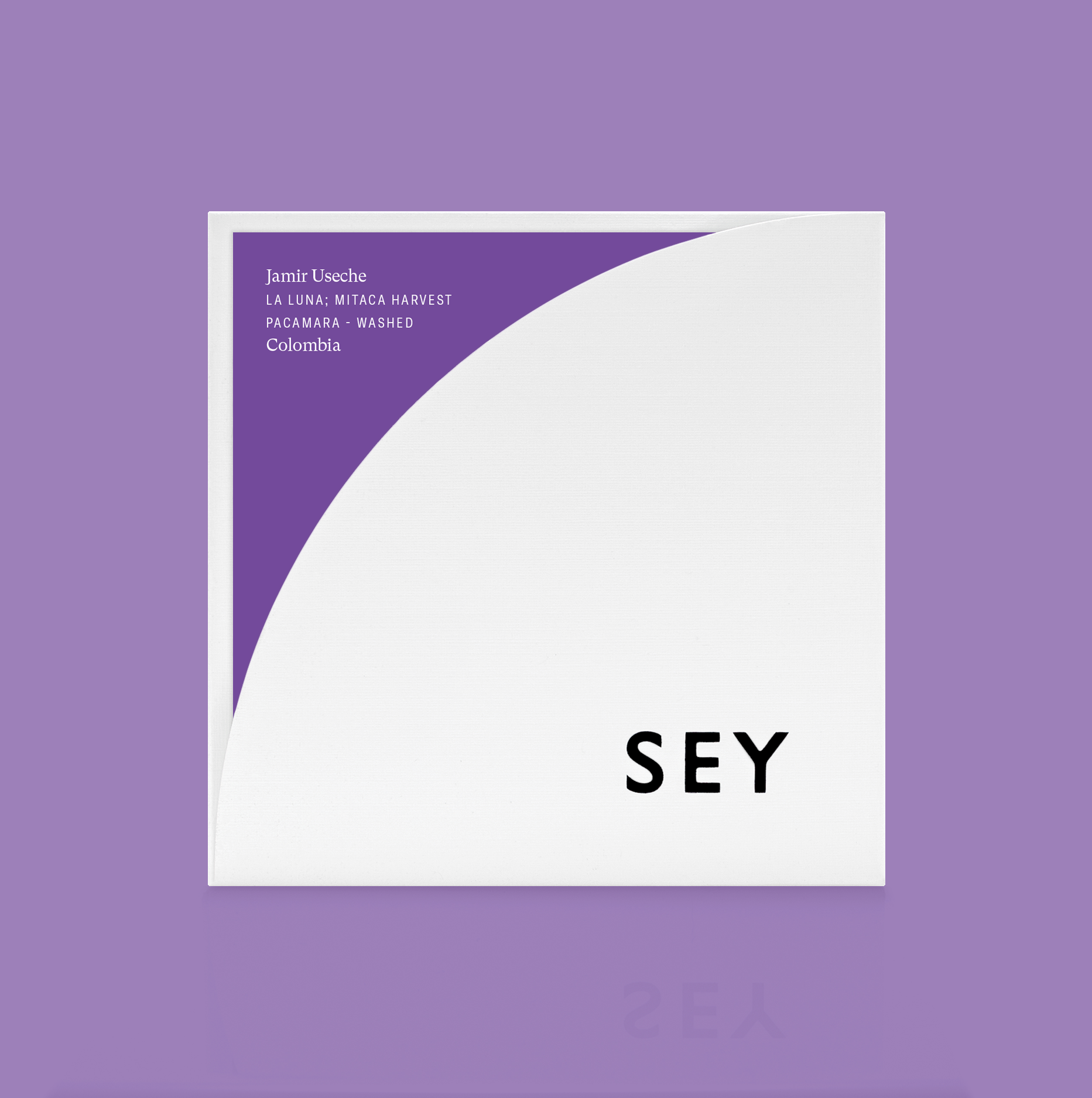
This is a very small farm owned and operated by a young couple Jamir and his partner Ana Marcela. This selection is a 100% Pacamara separation; a unique variety—especially in the region of Acevedo. In the cup we find a bright, almost tropical acidity, berry-like sweetness, and a subtle tea florality.
First Roast: 03/09/2021
Pacamara
Acevedo, Huila
1,500 masl
Mitaca; November, 2020
Hand picked at peak ripeness. Floated to further remove defects. Depulped. Dry fermented for 36 hours. Dried on raised beds for 15-20 days.
ABOUT JAMIR USECHE
La Luna is a small farm operated by a young couple Jamir and Ana as well as their daughter Luna Alexandra. They all come from coffee producing backgrounds and families. La Luna began in 2012 when Jamir and his four siblings divided the farm between themselves and each built a home for their family on their respective plot. This is a very common practice in Colombia—especially in coffee growing regions—and is one of the main reasons why farm sizes are getting smaller and smaller. Jamir and Ana are extremely proud of their coffee, and are very happy working on their own land. We love finding young producers to buy coffee from as it is a necessary investment in the future of specialty coffee. Jamir and Ana are passionate and driven, and we are proud to work with their coffee.
ABOUT PACAMARA
Pacamara is a non-hybrid variety related to both Typica and Bourbon. It originated from a cross between Pacas and Maragogipe, and is most commonly grown in El Salvador. It is highly susceptible to disease and has low yield potential, but is revered for its exceptional cup quality.
Pricing Details
Farm Gate (Local)
2MM COP/CARGA
Farm Gate (USD)
$5.87/KG
FOB
$9.60/KG
FOT
$11.56/KG
The cost of getting a coffee from cherry to beverage varies enormously depending on its place of origin and the location of its consumption. The inclusion of price transparency is a starting point to inform broader conversation around the true costs of production and the sustainability of specialty coffee as a whole.